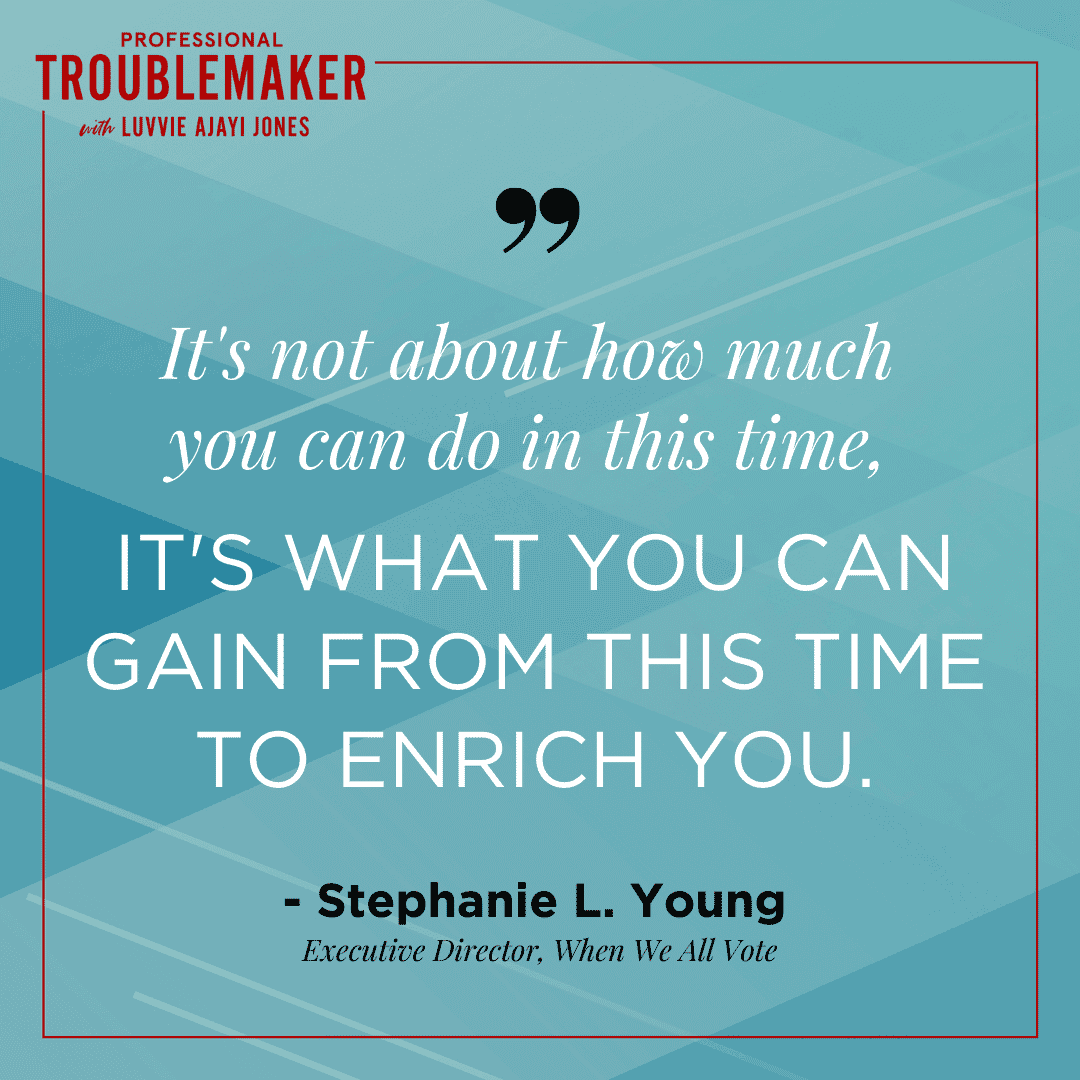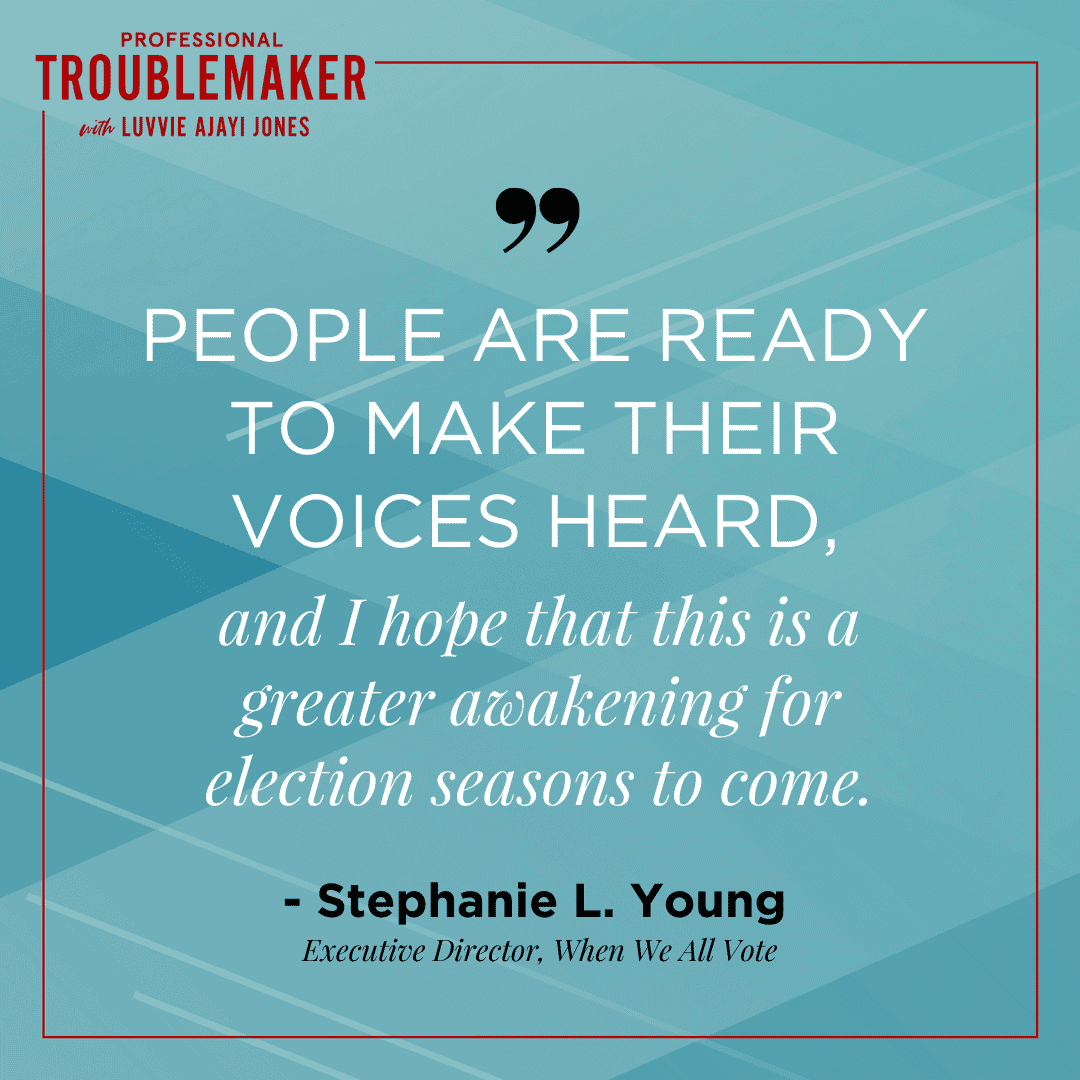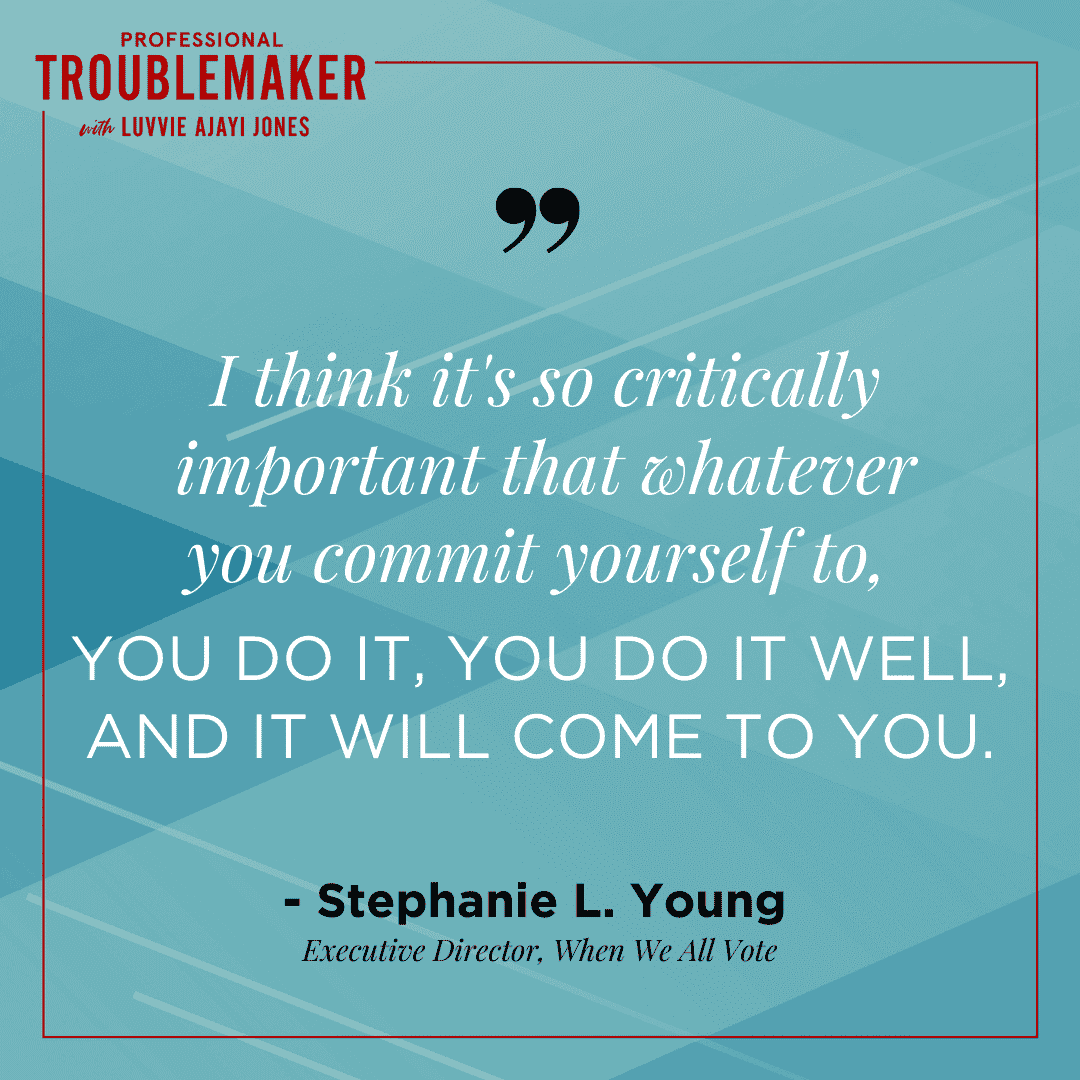Make sure you’re subscribed and that you rate and review! Share on social media using the hashtag #ProfessionalTroublemaker. Also, follow the podcast on Instagram! Email info@aweluv.com with feedback or questions!

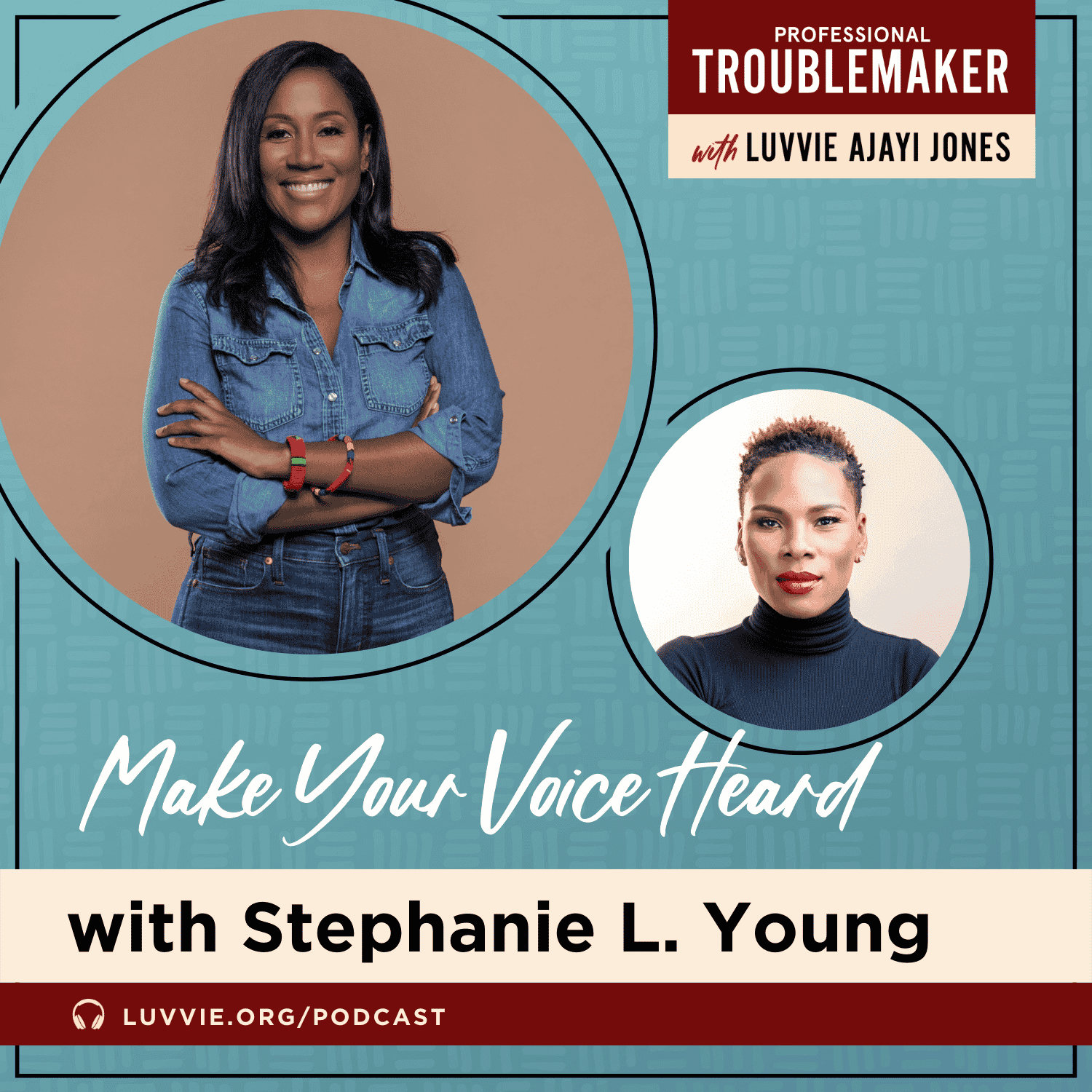
About the Episode
This week on Professional Troublemaker, we’re re-airing an encore episode that is extremely timely as we watch the confirmation hearings for Ketanji Brown Jackson, who will hopefully become the 116th Associate Justice of the United States Supreme Court and the first Black woman to be appointed and confirmed as a justice. This amazing woman is a nominee because people went to the ballot box in 2020 (often in the face of enormous opposition) and voted to make their voices heard. And with mid-term elections coming up this fall, we need to hear today’s podcast conversation again.
Luvvie’s guest is Stephanie L. Young. Stephanie currently serves as Executive Director at When We All Vote, a nonpartisan voting initiative launched by Michelle Obama. She has years of communication experience in the public and private sectors with organizations such as the Obama White House, Congressional Leadership, NBCUniversal, and BET.
View this post on Instagram
During our conversation, we discover what Stephanie’s childhood was like and how she started her career, how she was able to get a job at the Obama White House, and what she’s doing now that has traces to what she used to do when she was younger.
Part of being a disruptor for the greater good is making sure your voice is heard, and that you do what you can to speak up on behalf of the voiceless, so for us, this interview is as important now as it was when we aired it previously.

People are ready to make their voices heard,
and I hope that this is a greater awakening for election seasons to come.
About the Guest
Stephanie L. Young
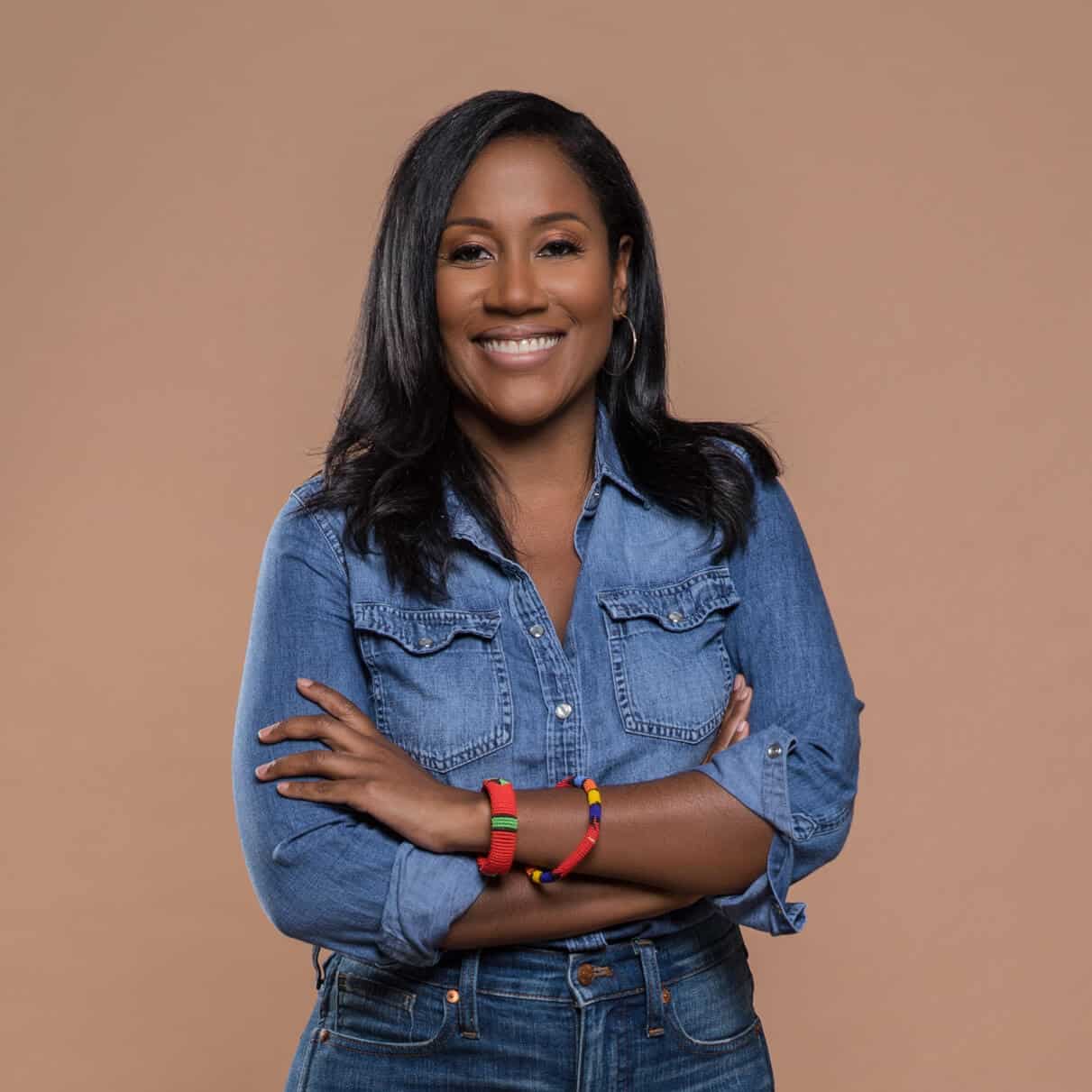
Stephanie L. Young serves as the Executive Director of When We All Vote, a non-partisan voting initiative created by Michelle Obama. Most recently she served as the Chief Communications and Culture officer for When We All Vote.
In that role she created and implemented a messaging, cultural and partnerships strategy which helped register over 500,000 voters and engage with 100 million Americans in 2020 – the largest increase in voter participation in over 120 years. Through her leadership she created the #CouchParty with DJ D-Nice the first virtual live voter registration event that reached over 400K voters.
Stephanie has more than 15 years of experience as a senior strategic communications, engagement and content strategist with a proven track record of building strong connections and developing creative solutions for issues involving culture, entertainment, justice, politics and activism in the public and private sectors.
Her work spans from organizations including the Obama White House, Congressional leadership, NBCUniversal Cable Entertainment and BET Networks. In these roles, Stephanie demonstrated the influence that politics, pop culture and the entertainment industry can have on each other to create a more fair, progressive and just society through artistry, activism and storytelling.
During her time in the White House, Stephanie had the unique opportunity to serve in two critical roles as the Associate Communications Director and then as the Senior Public Engagement Advisor. In these roles she led the press strategy around domestic policy announcements, and created and managed critical relationships for the President in the African American community.
Prior to the White House, Stephanie worked on political campaigns and for the House Democratic Leadership in Congress where her roles included time as the National Press Secretary for the House Majority Leader and Communications Director for the Congressional Black Caucus (CBC).
Stephanie is a graduate of Hampton University who has also lived in Atlanta, Cape Town, Dallas, Jacksonville and Washington, DC before moving to Brooklyn, NY where she currently resides. It was during her time in Cape Town that Stephanie was exposed to the power of organizing, voting and justice as the country transitioned from Apartheid to Democracy.
Transcript

Subscribe to Professional Troublemaker



 View the Transcript
View the Transcript